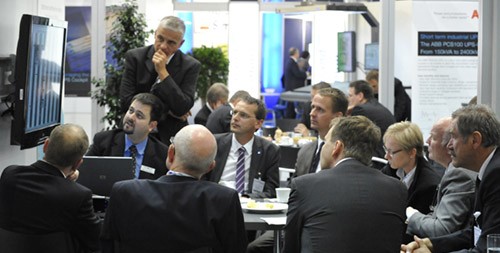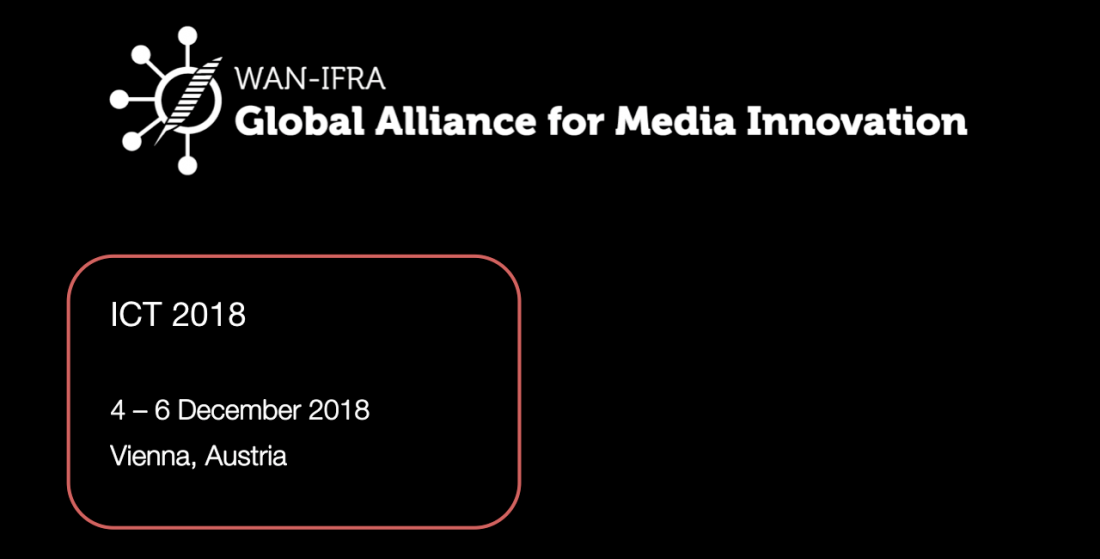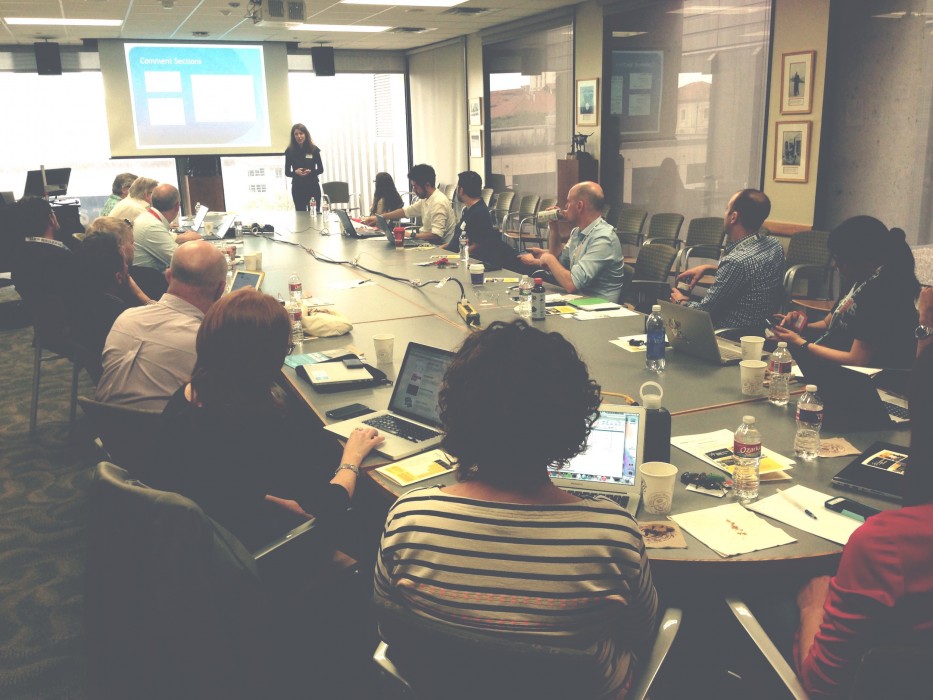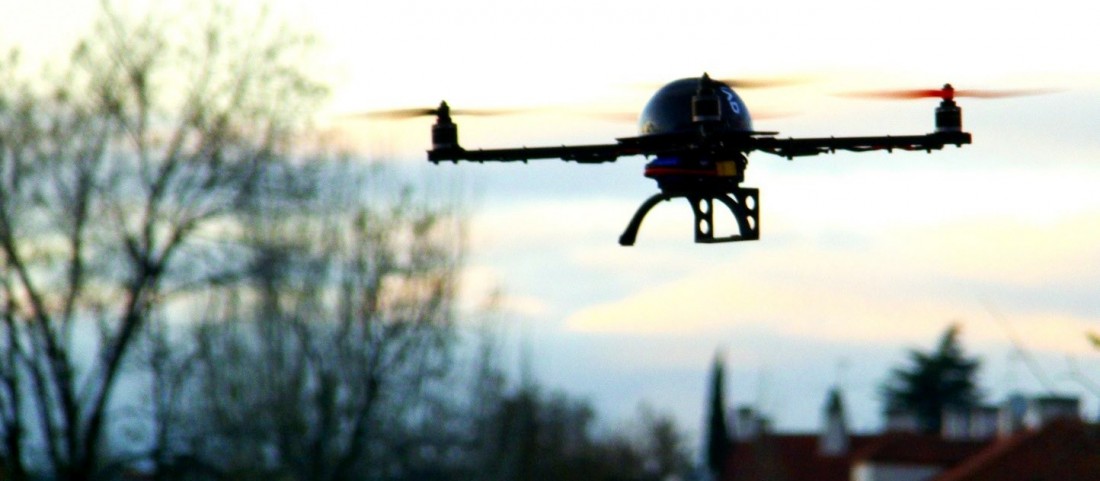Paris AI Forum
WAN-IFRA is organising the Paris AI Forum on 19 and 20 November 2024. The pivotal discussion at the Forum is the exploration of AI’s profound influence on content creation, distribution, and audience engagement. This engaging dialogue will shed light on the future of media in the era of artificial intelligence.
Registration available here.
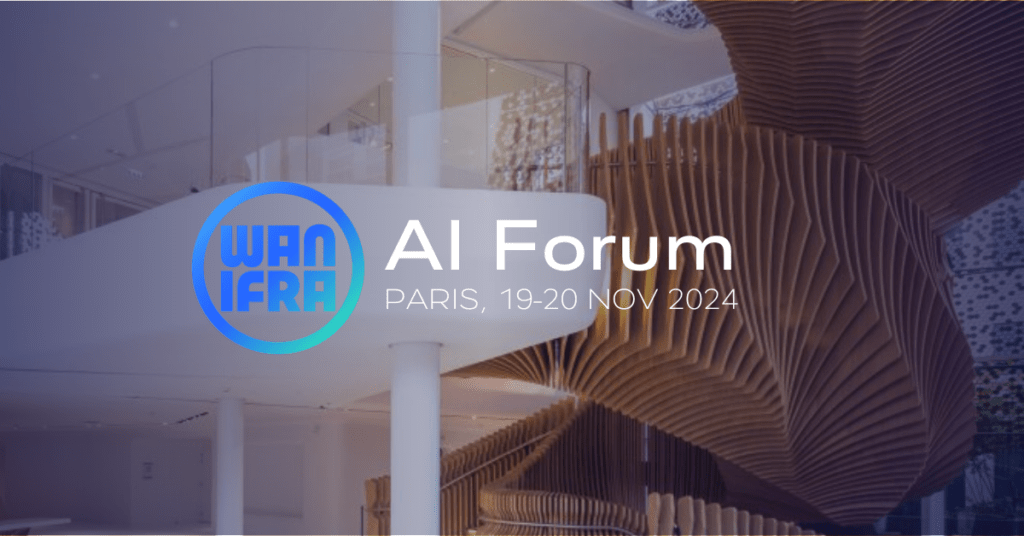
The main themes of the programme include:
➽The vision and strategic planning of international players – The future of AI and the information economy are inextricably linked and require sustainable business models and ecosystems. Understanding AI’s strategic role in the value chain is crucial. But who controls the value chain? What leverage do publishers have in an increasingly global technological environment? What is the impact of LLMs on the three pillars of journalism: news gathering, content production and distribution?
➽ What AI applications are currently in operation in newsrooms and support centres – This practical and operational review is a cornerstone of the Forum programme. With an increasingly limitless toolbox, deciding which will save you time or add value is the challenge. Project managers who can help their companies choose the right tools and applications will be indispensable game masters in the year ahead. The programme dedicates a significant portion of the two days to presenting practical, concrete applications, notably in editorial content gathering, production and distribution, user experience and conversational agents, and sales performance. These cases are packed with practical operational information that can be transposed to most organisations. Among the cases presented are automation and personalisation of AI-driven content, editorial assistants, optimisation of subscriber acquisition, loyalty, and many more.
➽ Up-skilling, re-skilling and cross-skilling for AI is a pressing need. The scarcity of AI skills on the labour market is prompting companies to invest in programmes to upskill and retrain their employees. By developing AI skills within their own teams, businesses can not only accelerate the adoption of AI technologies, but also secure a critical competitive advantage.
➽ The impact of LLMs on newsroom organisation, its economic and human implications. AI poses major challenges to the journalism sector and to the functions and roles of journalists. It will need to demonstrate adaptability and collaboration, and ensure that the diversity of voices remains at the forefront. What role does the ‘human loop’ play in an algorithmic world?
➽ Investment management. EY’s AI Pulse survey reveals that investment in AI is set to double, but many companies are not investing in the necessary infrastructure. Despite the predicted investment boom, their findings also indicate that many executives are ignoring the fundamental functions that AI needs to thrive. Successful AI adoption requires more than just technology integration; it’s about adapting to a new paradigm in which AI is reshaping every aspect of the business. From building a scalable data infrastructure to fostering a workforce proficient in emerging technologies, a holistic approach to AI adoption is essential. How can publishers, especially the more fragile ones, meet this challenge?
➽ SEO: The disappearing link. Search, that other source of traffic, is being turned upside down. Conversational AI interfaces do away with links and take you straight to the answer to your question. Google is already rethinking its search experience by placing AI-generated answers right at the top and pushing traditional links to the bottom, along with the whole business model that used to be linked to them. No one knows what happens next. Will Apple build a search engine? Will ChatGPT change search? Does it matter?
➽ The Big Tech-Publisher relationship: In search of a third way. Publishers are not optimistic about financial support from big AI companies. In a recent EBU report, Dmitry Shishkin, CEO of Ringier International, says: ‘We need to talk to technology companies. Monetary compensation should be much stronger, as it has been with social media and search. I’m a little more optimistic. Of course, some small organisations will never have the power to negotiate. Governments have to do something to protect local and regional information’. The scepticism of Ringier’s international boss is confirmed by the results of surveys conducted by the Reuters Institute. In December 2023, only a minority believed that the sector would benefit from significant compensation. Are negotiation or attack the only alternatives for a fair distribution of value? Wouldn’t it be better to look seriously at a third way?
➽ Towards responsible Artificial Intelligence. Transparency, collaboration and shared responsibility between technology companies and information players are essential for the future of accountability and operator responsibility management. From a journalistic point of view, risks or concerns can be divided into three categories. Firstly, the risks associated with the technology itself: propensity to hallucinate, reinforcement of stereotypes, violation of copyright and data protection. The second group of risks relates to the way in which these systems are used: Will users check facts and sources before publishing or sharing? Will the simple possibility of producing new content and products almost instantaneously lead to massive overproduction? The third group of risks is structural: how will dependence on a few large technology companies shape the way the public accesses information, communicates and connects with each other? How will the abundance of artificially (co)manufactured content affect general confidence in news and information?
➽ The disruptive cyclone going next… Scenario for the future of sustainable news media in the era of AI and large language models.
WHERE AND WHEN TO MEET
The Forum will be held at the Le Parisien-Les Echos group headquarters, close to the Eiffel Tower.
10 Boulevard de Grenelle
75015 Paris
Participants are welcome on Tuesday, November 19, from 9:00. The programme starts at 10:00 and closes on Wednesday, November 20, at 17:00. The Forum will be followed by a dedicated day focusing on subscriber acquisition and retention, The Audiencers Festival, organised in partnership with WAN-IFRA.


